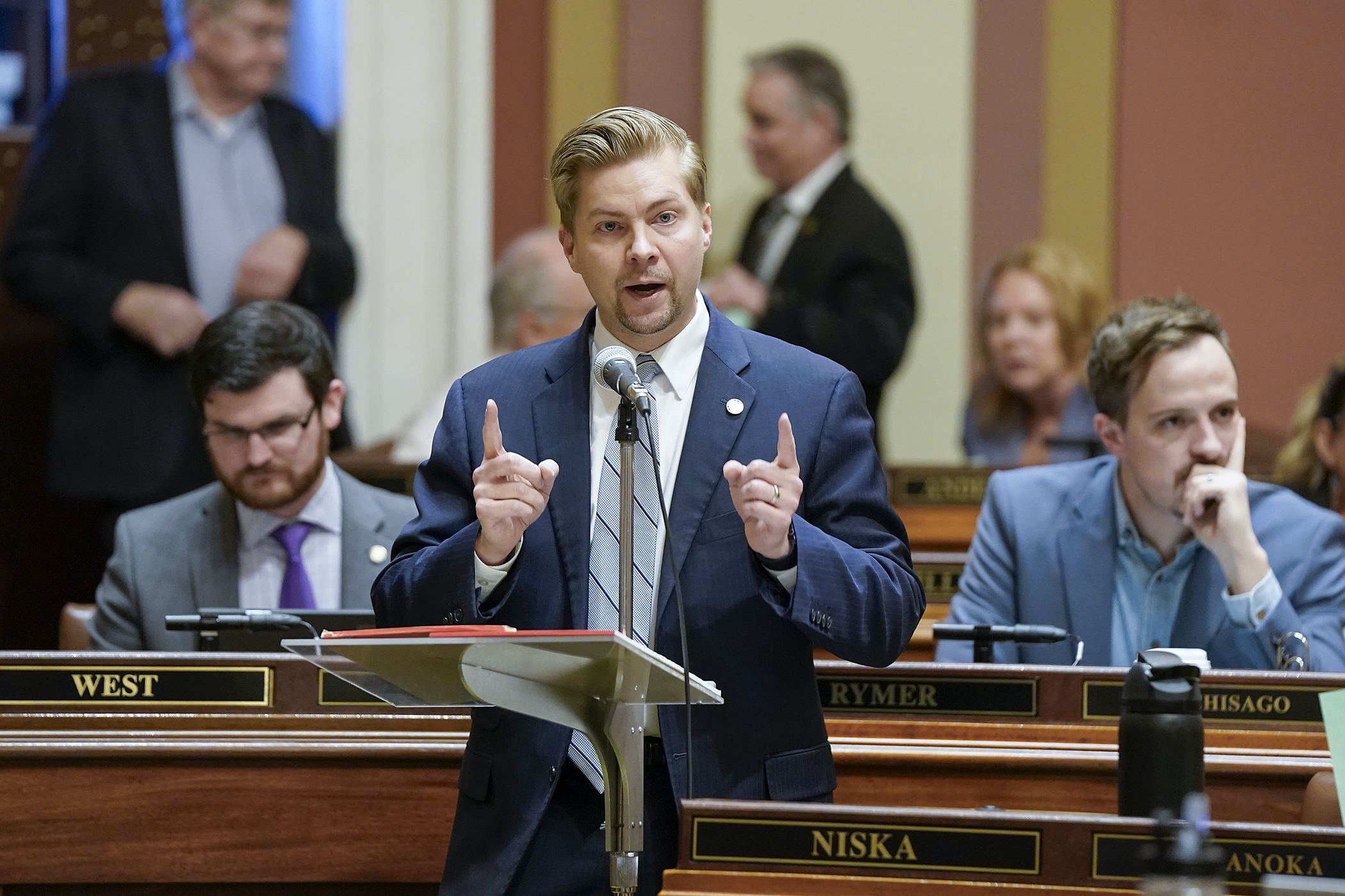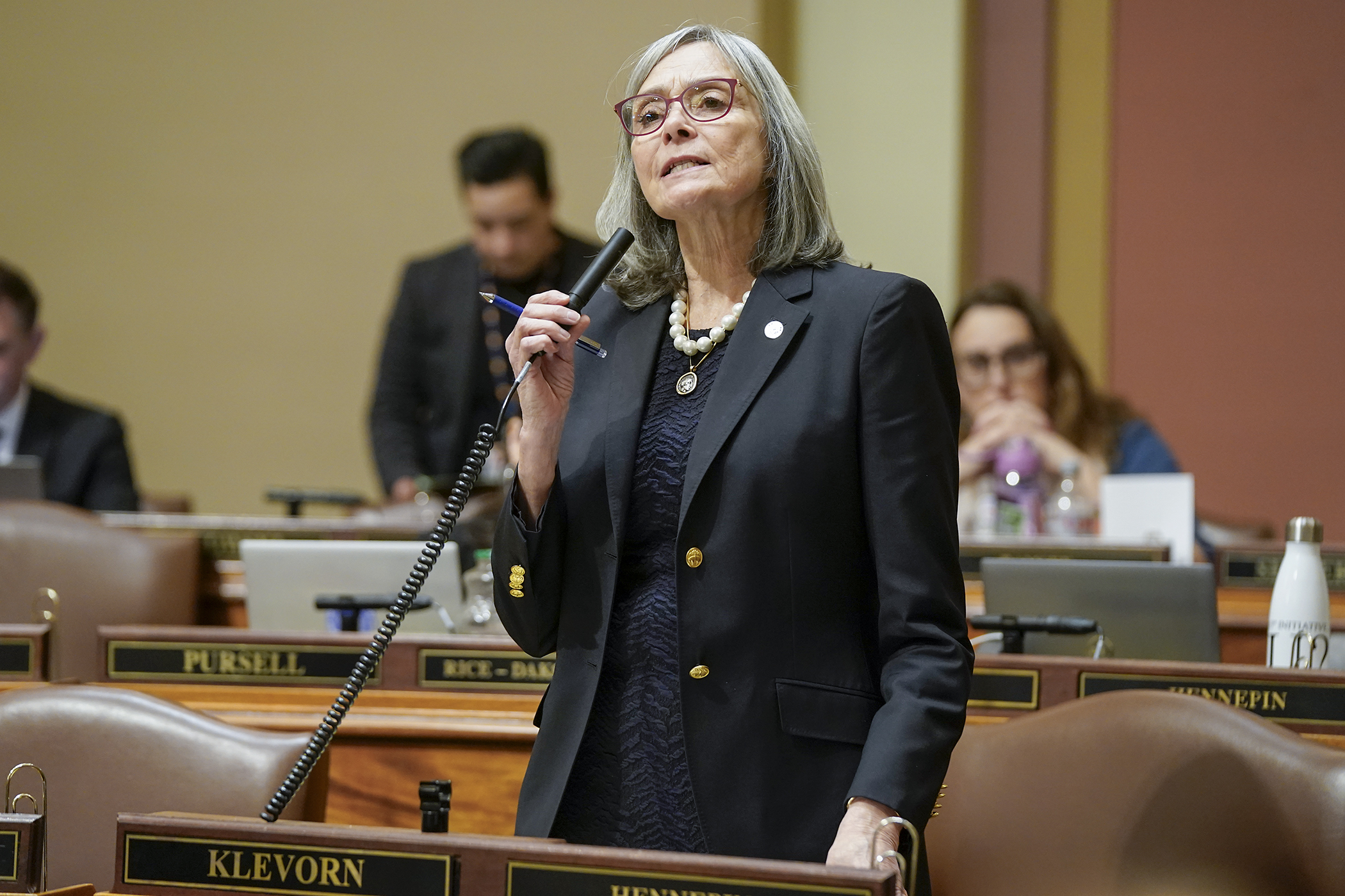House debates, rejects then tables bill to change data disclosures of AG office

There was plenty of parliamentary drama as the House took up its first bill of the session Thursday and then tabled it after about a 90-minute debate.
The bill regarding data practices in the Office of the Attorney General therefore returned to its place at the top of the Calendar for the Day, ready to possibly be taken up again at a future date.
When the debate ended, and as the green and red lights on the House voting display were lighting up along party lines, it became clear that HF20 would lack the needed votes. Sixty-eight votes are required for passage; Republicans hold a 67-66 seat advantage.
That’s when House Majority Leader Harry Niska (R-Ramsey), the bill sponsor, changed his vote from “yes” to “no.” Per House Rules: “After a question is decided either in the affirmative or negative, a member who voted with the prevailing side may move to reconsider it.” Niska immediately did.
 Rep. Ginny Klevorn unsuccessfully makes a motion to re-refer HF20 to the House State Government Finance and Policy Committee during a Feb. 20 floor session. (Photo by Michele Jokinen)
Rep. Ginny Klevorn unsuccessfully makes a motion to re-refer HF20 to the House State Government Finance and Policy Committee during a Feb. 20 floor session. (Photo by Michele Jokinen)His motion prevailed on a 67-65 party-line vote, and his next motion to table the bill was adopted on a split voice vote.
So, the House ended up where it started.
The bill would have made data collected by the attorney general’s office, such as information collected during investigations of consumer complaints and “whistleblower” actions, classified as private only if they were truly data “on individuals.”
Niska characterized the bill as a “sunshine” act.
“Government transparency needs to be an absolute value in our democracy,” Niska said. “We cannot hold our elected officials accountable — including those in such important positions as the attorney general’s office — unless we know what’s going on in that office.”
Niska said the bill impetus is to correct what he calls the state Supreme Court’s misinterpretation of the Data Practices Act in a 2022 decision as it applies to the office.
That decision, he said, gave the office too much leeway to hide from the public how it investigates complaints and how corporations and organizations are influencing those decisions.
Democrats had a different take on that decision, saying the bill would hamper the office’s investigations into civil and consumer complaints, for example, by removing protections certain whistleblowers would have against public disclosure and hence expose them to possible retaliation.
House DFL Floor Leader Jamie Long (DFL-Mpls) cited an example of the need to keep from publicly identifying a family farm organized as an LLC that might rightly fear retaliation for reporting on the misconduct of the large agricultural conglomerates to which it must sell its products.
Related Articles
Search Session Daily
Advanced Search OptionsPriority Dailies
Speaker Emerita Melissa Hortman, husband killed in attack
By HPIS Staff House Speaker Emerita Melissa Hortman (DFL-Brooklyn Park) and her husband, Mark, were fatally shot in their home early Saturday morning.
Gov. Tim Walz announced the news dur...
House Speaker Emerita Melissa Hortman (DFL-Brooklyn Park) and her husband, Mark, were fatally shot in their home early Saturday morning.
Gov. Tim Walz announced the news dur...
Lawmakers deliver budget bills to governor's desk in one-day special session
By Mike Cook About that talk of needing all 21 hours left in a legislative day to complete a special session?
House members were more than up to the challenge Monday. Beginning at 10 a.m...
About that talk of needing all 21 hours left in a legislative day to complete a special session?
House members were more than up to the challenge Monday. Beginning at 10 a.m...